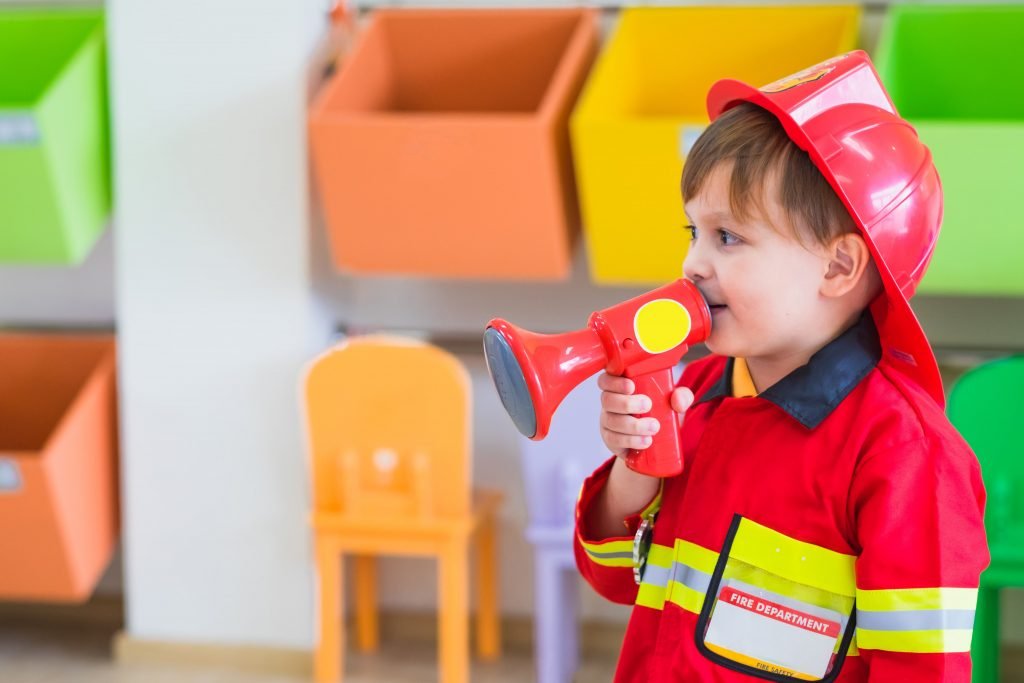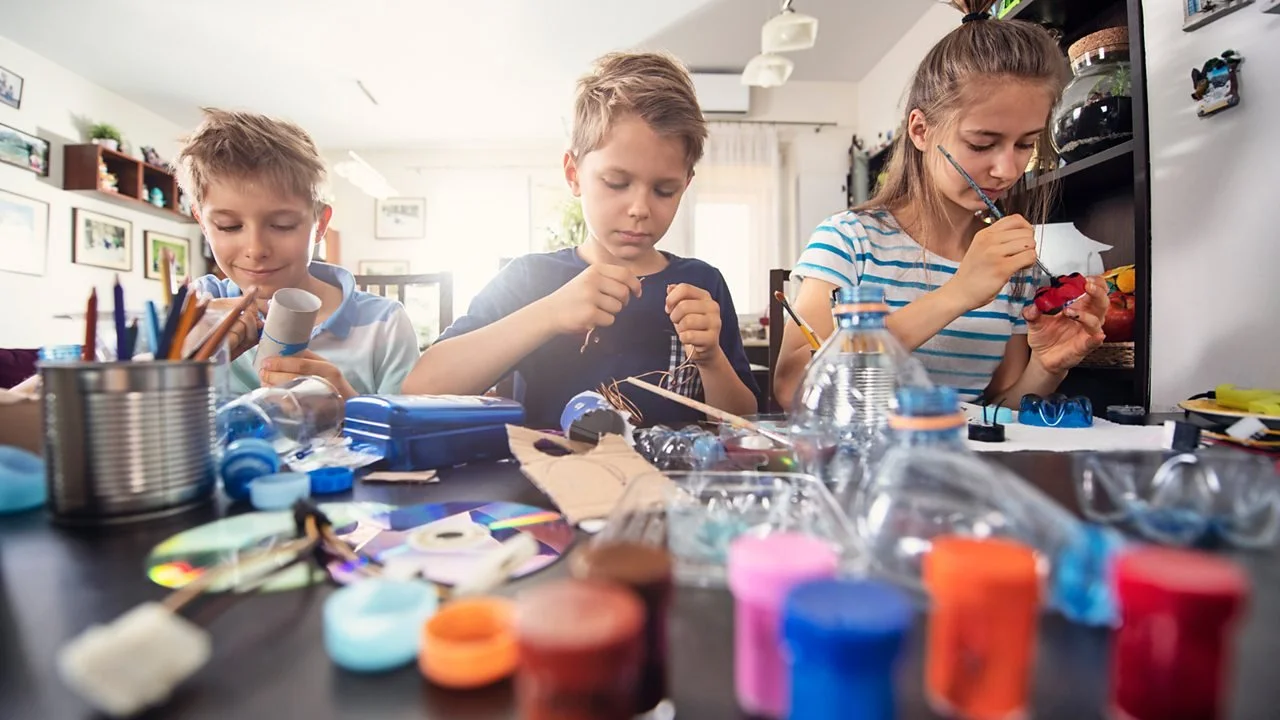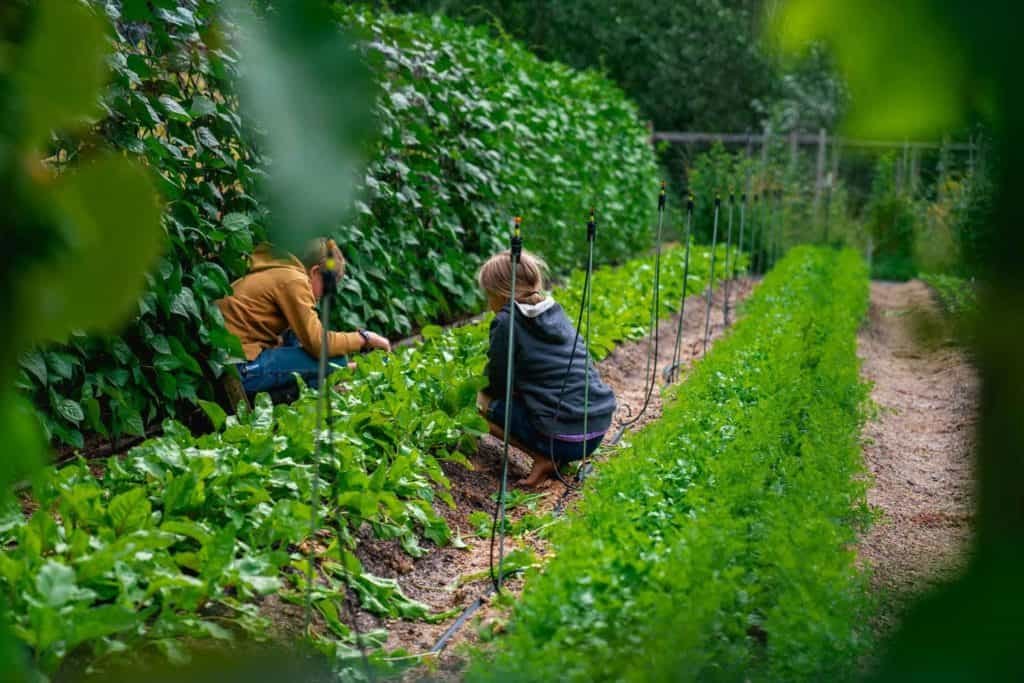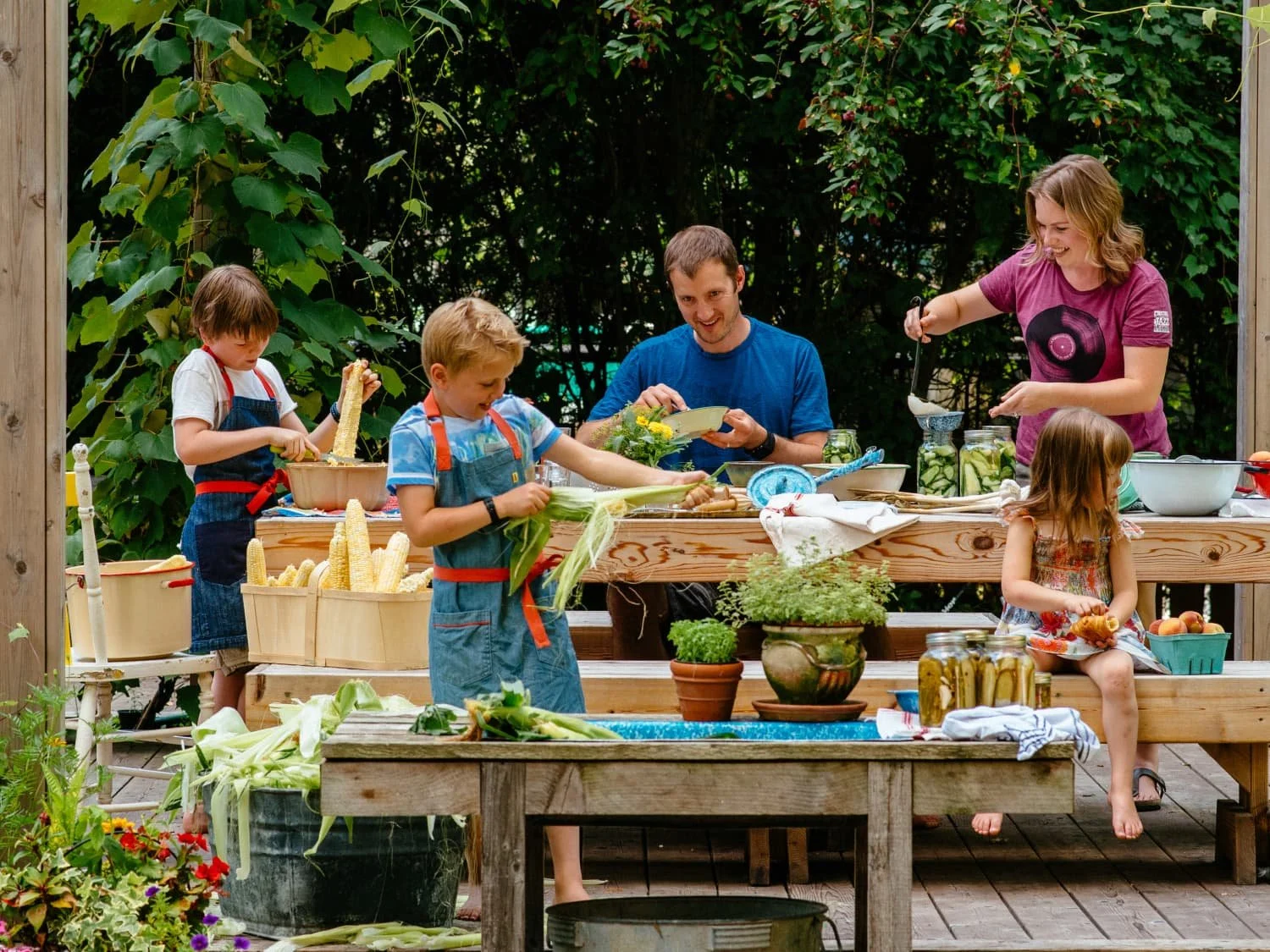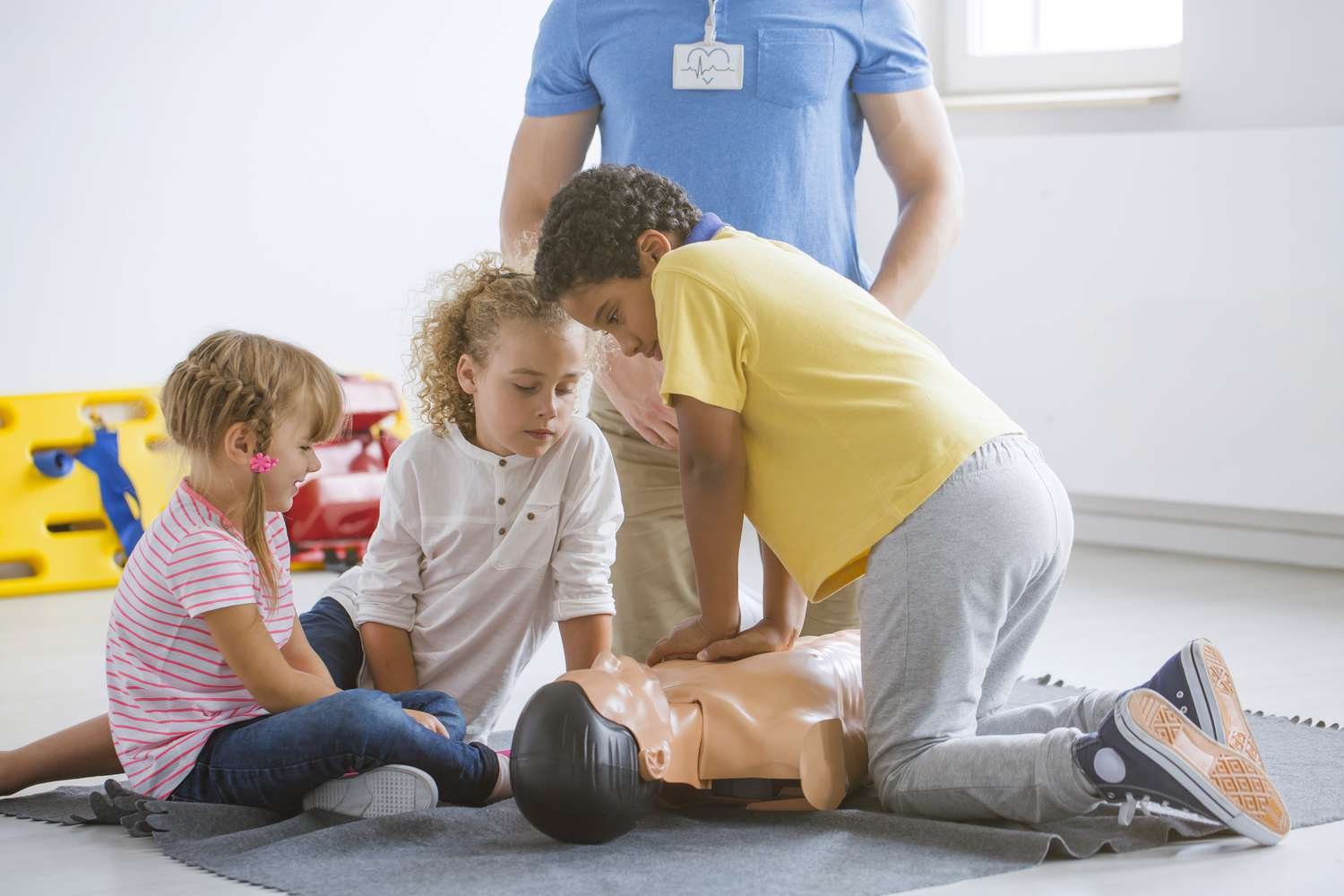Homestead Homeschool Curriculum
Discover > Homesteading > Homestead Homeschool Curriculum
Homeschooling your children with a curriculum that teaches self-reliance can be immensely satisfying. With a Homestead Homeschool Curriculum, you can teach your children how to grow their own food, live sustainably, and become self-sufficient.
In this blog post, we will summarize what you should include in your Homestead Homeschool Curriculum to emphasize the importance of gardening techniques, outdoor and indoor skills, and fire safety. Let's dive in!
Self-Reliance
Homestead Homeschool Curriculum teaches your children how to meet their basic needs without depending on others. A strong curriculum will help your children become independent and self-reliant by first teaching them how to grow their own food.
Build a program that offers a comprehensive guide to farming, gardening, and animal husbandry, and more. Your children will learn how to take care of a homestead and not just survive, but thrive!
Gardening Skills
A good Homestead Homeschool Curriculum will provide detailed information on gardening techniques that will help your children grow their own food. They will learn how to plant, tend, water, and harvest vegetables and fruits.
It will also teach your children how to garden organically. It will provide a step-by-step guide that includes choosing the right fertilizer and soil for different plants, which is crucial in growing healthy, sustainable, and nutrient-dense food.
Gardening Indoors
Teaching your children how to grow microgreens indoors and how to create an environment that is perfect for indoor gardening is essential.
Microgreens are an excellent source of essential nutrients and can be grown in small spaces, which makes them ideal for apartment dwellers. Your children should learn how to plant microgreens, care for them, and harvest them. They will also need learn how to use microgreens in their meals and the health benefits.
Outdoor Skills
A top notch Homestead Homeschool Curriculum will teach your children how to interact with nature, and develop outdoor skills.
Your kids should learn how to identify plants and animals, make a fire, pitch a tent, navigate with a map and compass, and survive in the wilderness. These skills are essential for outdoor enthusiasts and will help your children to develop self-confidence, independence, and self-reliance.
Setting Up A Trading Post
Teaching your children how to set up a trading post and use fire safely and effectively is an essential part of a Homestead Homeschool Curriculum.
Trading posts were established as important community hubs that allowed people to trade goods and services. The curriculum should teach your children how to set up a trading post and run it efficiently.
Fire Safety and Equipment
When you’re living in a homestead, you need to prepare for the possibility of fire outbreaks. Homeschooled kids should learn fire prevention and safety techniques, including how to fight a fire, equipment needed, and evacuation procedures. Your kids will also learn how to inspect and maintain fire safety equipment, such as smoke detectors, fire extinguishers, and fire blankets.
Observing
Observation is an essential skill for successful homesteading. Homeschooled kids can learn, practice, and perfect their observation skills by growing plants, observing animal behavior, monitoring water, and soil quality, and detecting changes in the weather. When children learn how to make keen observations, they develop critical thinking skills, which are needed for success in adulthood.
Homestead Finances
When homesteading, you can’t avoid dealing with money matters. Homeschooling can incorporate lessons in budgeting, monetary exchange, simple bookkeeping, and record keeping. Children should learn how to plan and prioritize expenses, save and invest, balance accounts, and make sound financial choices. These skills benefit them throughout their lives, regardless of their future career paths.
Emergency Preparedness
Natural disasters and emergencies can happen on a homestead, and children need to be prepared. Homeschooled kids should learn how to develop an emergency plan, survival skills, first aid basics, and how to shelter in place. They also could learn the importance of having and maintaining emergency supplies, such as food, water, and medical equipment.
Making Natural Cleaners and Homestead Crafts
Making your own natural cleaners and creating homestead crafts can be a fun way to impart various skills to your homeschooled kids. Children get to learn chemistry, biology, and physics while making natural cleaners and their advantages over commercial ones.
Homestead crafts, on the other hand, promote creativity, critical thinking, and problem-solving skills. Children could learn various DIY projects such as log splitting, cheese making, and wool spinning.
Upcycling Crafts
Upcycling is the process of transforming waste materials into new products of higher value. A decent homestead homeschool curriculum emphasizes the importance of reducing waste and using resources sustainably.
Children can learn how to make new things from old and develop their creativity. Arts and crafts projects such as repurposing old jars for storage, making toys from scraps, or upcycling clothes teach children essential skills while also saving money.
Homemade Laundry Soap
Making your own laundry soap is a great way to save money, reduce chemical exposure, and create a product that is environmentally friendly.
Homesteading teaches children to be self-sufficient, and making your own laundry soap is a great way to practice that. Children can learn about the chemistry of soap making, measuring ingredients, and following instructions. Plus, they will feel great knowing that they are helping the environment.
Researching
The Homesteading Homeschool Curriculum emphasizes the importance of research. Learning how to carry out research is essential to homesteading.
Children could learn about the basics of soil quality, the benefits of composting, preparing and preserving food, raising livestock, and so much more. Strong research skills will come in handy.
Homestead Values
A homestead curriculum must have a strong emphasis on homestead values, which include frugality, good stewardship, self-reliance, building a strong family, and a connection with nature.
These values serve as a foundation that supports the other parts of the curriculum. Children must learn how to live off the land, grow food, and practice sustainability. Furthermore, they learn how to be good stewards of the Earth so that the environment can thrive.
Farming Basics
Learning the basic principles of farming is vital. Children should learn about everything from seed selection and soil preparation to irrigation, pest control, and harvesting. It also helps for them to learn how to grow their own food, whether that be fruits, vegetables, or herbs.
Canning and Preserving
Incorporating food science into the curriculum should teach children how to preserve their food. They can learn how to safely can and preserve fresh fruits and vegetables.
Furthermore, they could learn about dehydrating, smoking, curing and freezing food. This is an important skill for homesteaders, as it helps to preserve food for the winter months. Students could learn how to make their jams, jellies, and pickles, ensuring that nothing goes to waste.
Being Prepared
It is important children know how to prepare for emergencies. A Homestead Curriculum should cover everything from stocking up on supplies to creating a food storage system.
Students will learn how to be prepared for natural disasters, power outages, and economic crises. This lesson is essential, as it will help homesteaders become more self-sufficient and ready for anything.
Building A Bug-Out Bag
Students would find it useful to learn how to build their bug-out bags. A bug-out bag includes everything they need to survive in the event of an emergency, including food, water, medical supplies, and tools.
Building a bug-out bag is a crucial part of being prepared for emergencies. Plus, students will have the satisfaction of knowing they can take care of themselves and their family in an emergency.
Benefits of a Homestead Homeschool Curriculum
One of the benefits of building a Homestead Homeschool Curriculum is that it will allow children to develop a deep connection to the natural world and understand the impact humans have on the environment.
Children will learn about sustainable agriculture and the importance of conservation, as well as the science behind these practices.
A Homestead Homeschool Curriculum is designed to be hands-on, with plenty of outdoor activities and exploration. Children will spend time tending to gardens, caring for animals, and observing the natural world around them.
A Homestead Homeschool Curriculum fosters a love of learning and encourages children to take an active role in their education.
It is also designed to be flexible and adaptable to the needs of individual families. Parents can choose which areas to focus on and which may be less applicable to their family's situation.
There are also many resources that can be used to supplement the curriculum, such as books, videos, and online resources. The curriculum can be designed for children of all ages and school year, although younger children may need more assistance with some of the activities.
Embarking on a home-schooling adventure is an excellent option for families who are interested in a hands-on, nature-based education that emphasizes sustainability and responsibility.
By learning about gardening, animal care, natural sciences, and land stewardship, children will gain valuable skills and knowledge that they can use throughout their lives.
A kind homeschool curriculum is a great way to foster a love of learning and an appreciation for the natural world.
Conclusion
Homestead homeschooling is an effective way of learning, as it combines practical skills and traditional academic knowledge. Homeschooled kids can develop an appreciation for nature, self-sufficiency, and sustainability while also preparing themselves for the world beyond school.
Homestead homeschooling curriculum integrates a broad range of skills, including fire safety, observing, homestead finances, emergency preparedness, making natural cleaners, and homestead crafts. These skills help children become confident, self-reliant adults that can meet any challenge head-on.
#little learner's homestead science build #homestead education podcast #public school #young child #homeschooling families #kind homestead curriculum #same age










